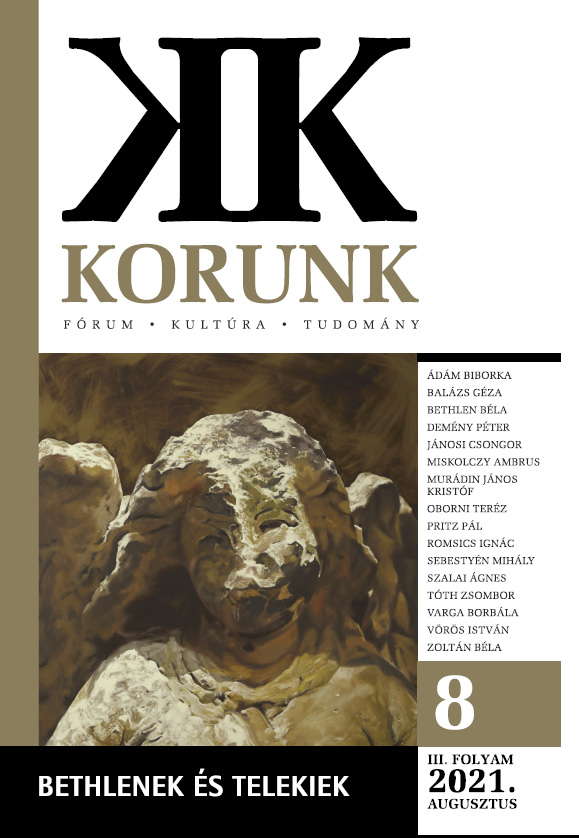Bethlen István miniszterelnöksége 1921–1931
The Prime Ministership of István Bethlen 1921-1931
Author(s): Ignác RomsicsSubject(s): Interwar Period (1920 - 1939)
Published by: Korunk Baráti Társaság
Keywords: Count István Bethlen; significant politician; Prime Minister; Hungary; 20th century
Summary/Abstract: Count István Bethlen was one of the most significant politicians of 20th Century Hungary. From the moment he was elected to Parliament in 1901 until the end of World War II, “making politics” was an integral part of his life. Between 1901 and 1918 he was a regional politician with peculiarly Transylvanian traits; in 1918-1920 he was a major organizer of the counter-revolutionary forces and then a leader of the Hungarian peace delegation; from 1921 to 1931 he served as prime minister of Hungary; and subsequently, until 1945, he proved to be the leading representative of the anti-Naci and pro-Western political orientation. In his essay Ignác Romsics who produced the most comprehensive biography on István Bethlen, analyses his ten years premiership. The author states that Bethlen is rightly considered the architect of the so-called Horthy regime. He successfully tackled a whole host of problems of crucial importance to the to the consolidation and stabilization of the regime. He managed to pull the economy out of the deep crisis after 1920 in little over half a decade. He stabilized political life which was very confuse during the revolutionary and counter-revolutionary time in 1918-1920. The created political regime assumed authoritarian character typical of that of most other countries in the region. Secondary and higher education maintained high standards, while public education also improved. New universities were built in Szeged and Pécs, replacing those left behind in the areas lost in the Trianon peace treaty, Kolozsvár/Cluj and Pozsony/Bratislava. The most important aim of his foreign policy was revision of this treaty. By means of skillful diplomacy, he secured to return to Hungary the Pécs area occupied by Yugoslavia while Sopron and its surrounding district were returned by Austria as a result of the plebiscite of December 1921. His foreign policy success was a treaty of friendship with Italy in 1927 too, although it had little immediate impact. The conditions for further border revisions were created only by the end of the 1930s. Facing the social consequences of the Great Depression, Bethlen resigned in August 1931. He died in 1946, in Soviet captivity.
Journal: Korunk
- Issue Year: 2021
- Issue No: 08
- Page Range: 46-58
- Page Count: 13
- Language: Hungarian

